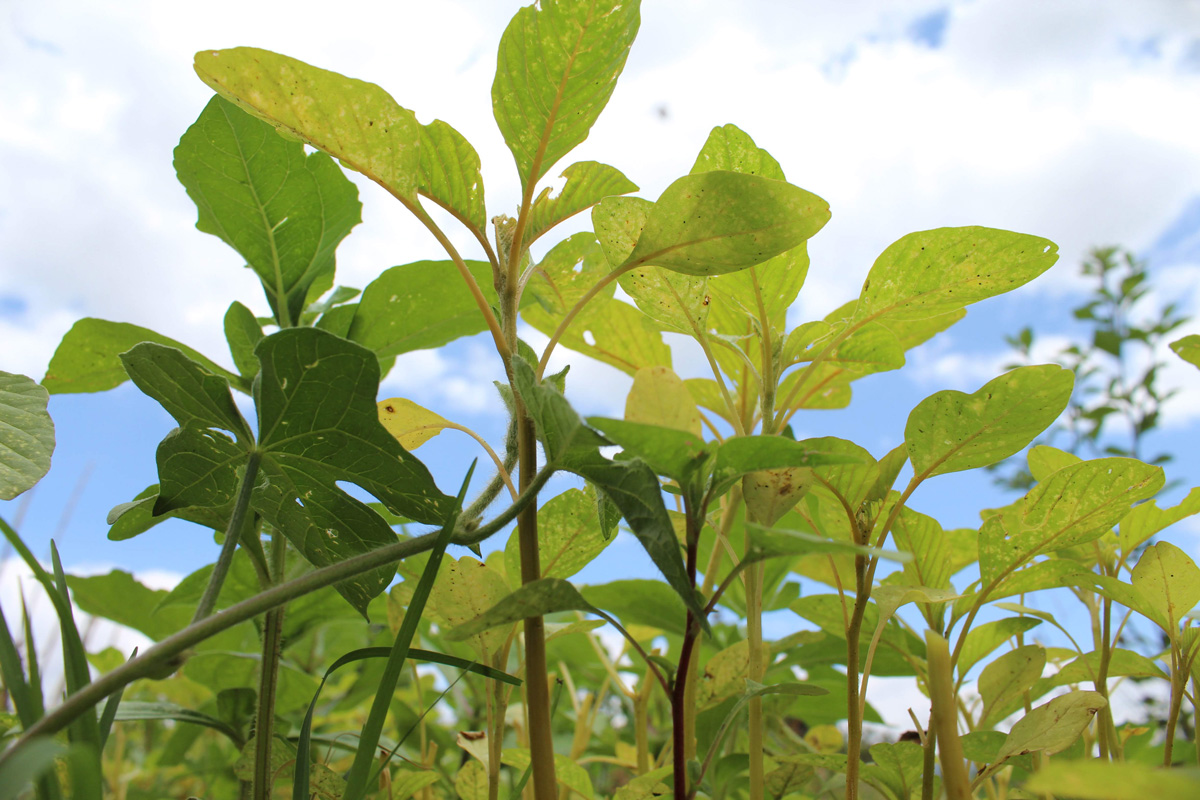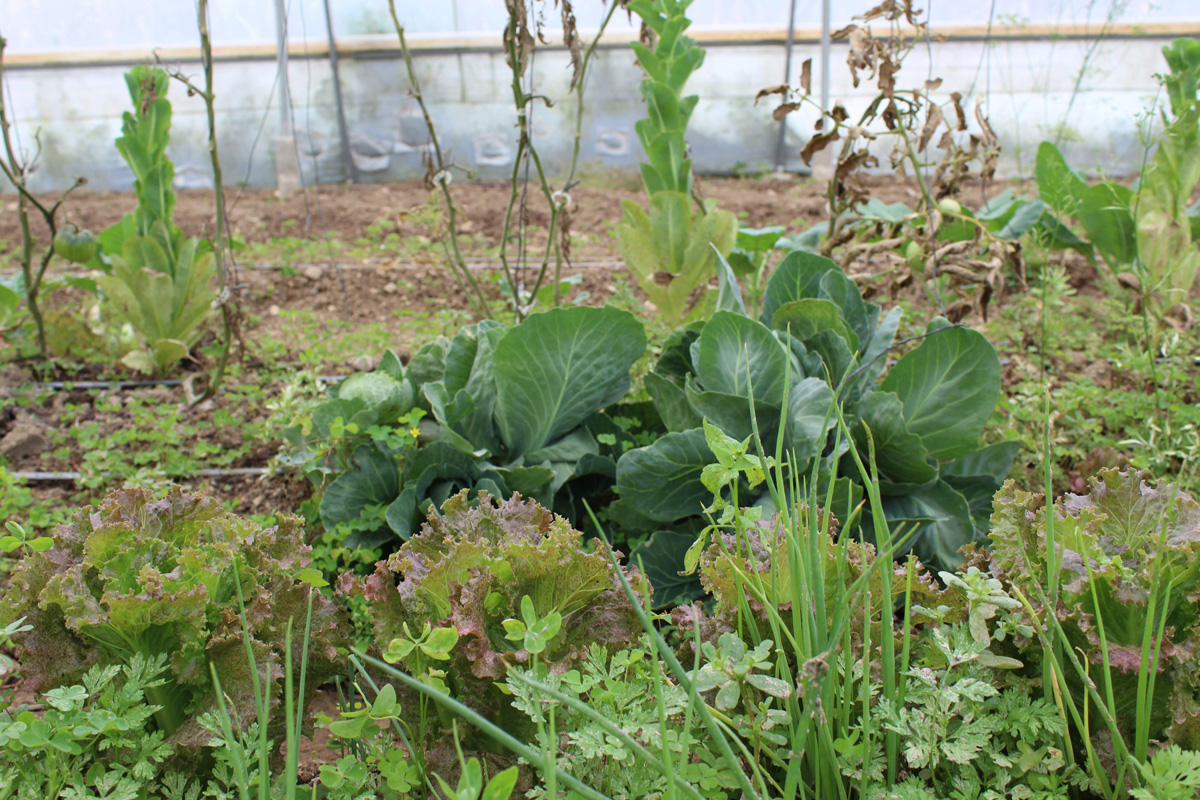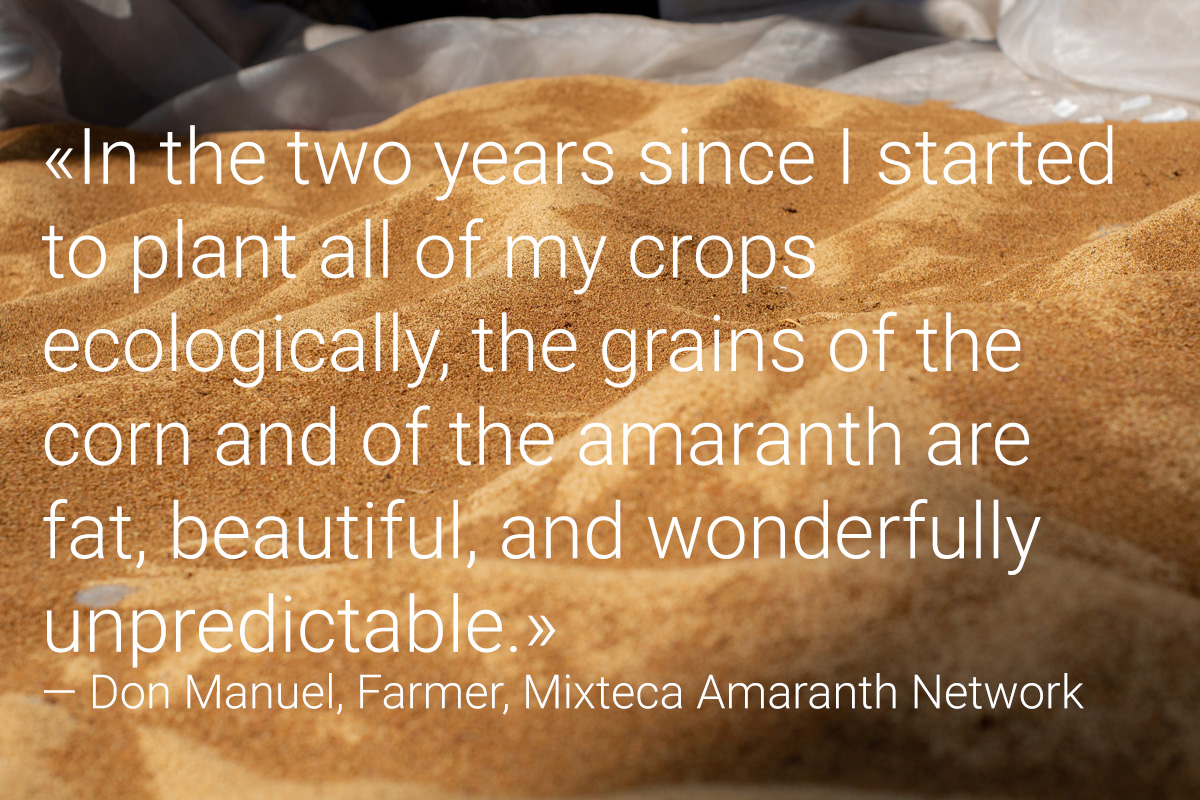Why Agroecology?
«I want my daughter to go to school and learn but it is also just as important that she works in the field and learns to love the land.» — Bibiana, Farmer in the Mixteca Regional Amaranth Network
The 10 principles of agroecology:
» diversity
» synergies
» efficiency
» resilience
» recycling
» collaboration and knowledge exchange
» culture and food traditions
» responsible governance
» circular and solidarity economy
» the value of people and community
Using agroecological practices goes hand in hand with Puente’s mission to contribute to food sovereignty.
Agroecology is the act of using natural cycles and processes along with appropriate technologies to create self-sustaining farming systems that will eliminate the need for harmful chemical inputs, that will recycle nutrients through the use of organic fertilizers, and that diversify crops. Agroecology reduces input costs, provides autonomy from corporations and governmental influence, diversifies income opportunity, and yields diverse produce for a more complete nutritional impact.
Agroecology is not just a farming technique. It is a socioeconomic practice that values people and the environment over profits. It values equity, solidarity, and responsible production and consumption, creating space for indigenous people as well as women, people of color, and youth to have a voice and to take on leadership roles.
In the fight for food sovereignty, agroecology is a transformational tool that provides a new model of production, distribution, and consumption outside of industrialized farming.
For every peso paid in industrial food, we pay two pesos in damage to our health and environment.
The average age of the smallholder farmer in Mexico is 67 years old. As the youth of Mexica and the world realize the damage that has been done to the environment, agroecology offers an opportunity to repair the soil and clean water systems as well as create economic opportunity in rural communities once again. Puente works to empower youth leaders to understand that there is hope, value, and promise in working the land.







